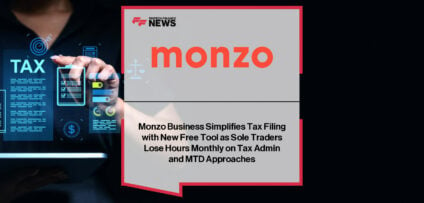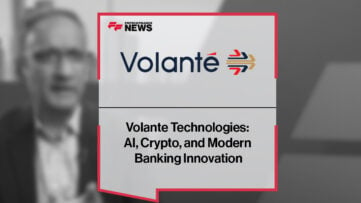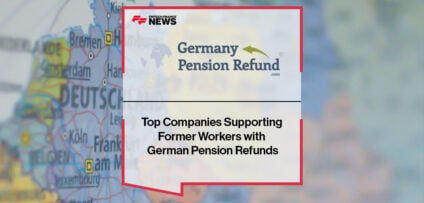Breaking News

‘Government Must Stop Ignoring Self-Employed Pension Crisis’, Think Tank Urges
The government should allow HMRC and financial service firms to provide people with personalised ‘nudges’ encouraging retirement saving, think tank argues.
The Social Market Foundation (SMF) has set out how best to support Britain’s self-employed workers to prepare for their retirement, while still maintaining their financial freedom and autonomy. The findings draw on a survey of 1,000 self-employed workers in the UK and their saving habits, conducted by the digital bank Monzo, which also commissioned the report.
The report comes as the Government has launched a new Pensions Commission, to identify complex barriers within the current pensions system which mean future retirees could end up being poorer than retirees today. Self-employed people (along with lower earners and ethnic minorities) have been identified as particularly at risk, with over 3 million not saving into a pension. While self-employment is now a considerable part of the economy, pensions policy has yet to catch-up, the SMF said.
Currently, only 20% of self-employed workers participate in a pension scheme, compared to 78% of employees. Of those who do regularly contribute to personal pension schemes, 31% contribute the same amount each month. This contrasts with employees, who typically contribute a percentage of earnings each month, so their pension contributions rise as earnings do. The research also found that 30% of self-employed people surveyed contribute to their pension less frequently than once a month, while 10% contribute less than once a year.
The most common reason cited for not contributing regularly to a pension scheme is that self-employed workers believe they ‘can’t afford to’. However, affordability is clearly not the whole story; an employee at the same income level as a self-employed person is still much more likely to save into a pension. SMF’s analysis of Monzo’s survey found nearly two-thirds of respondents reported that they either ‘don’t really understand’ or only ‘have a basic understanding’ of pensions. Participants on lower incomes were more likely to save spare cash at the end of the month in an instant access savings account than other options, reflecting an aversion to ‘locking away’ savings.
The major problem is that, unlike employees with auto-enrolment, there remains no specific mechanism to encourage self-employed workers to adequately save for retirement. Consequently, the savings gap between the self-employed and employees has widened sharply since the introduction of auto-enrolment policy.
There is currently a gap in the market for supporting self-employed workers to invest in their future. Some use financial advisors to help with retirement planning, but this is often only accessible to the wealthiest self-employed workers. For others, generic financial advice
can be complex or irrelevant, and has limited ability to encourage investment. The SMF believes government reforms to the ‘advice/guidance’ boundary, including proposals for ‘Targeted Support’ will help to address this issue, but more can be done.
Without targeted government intervention, the status quo is set to contribute to rising pensioner poverty, further straining public finances in the years to come. Pressure has been rising on the government to make reforms that increase self-employed workers’ retirement savings, a key component of the government’s pension review.
SMF recommends a series of nudges to encourage retirement saving among the self-employed, balancing autonomy with effective policy interventions.
- Short Term: Fast-track proposals enabling firms to offer Targeted Support to help people start investing, for example by resourcing the FCA gateway approving these activities to operate at pace.
- Medium Term: Consider ways to enable private sector firms to incorporate opt-out interventions in customer engagement to increase participation.
- Long Term: Working with HMRC and software providers, integrate nudges into self-assessment tax forms, including an “active choice” or opt-out auto-enrolment for pension contributions.
John Asthana Gibson, Researcher at Social Market Foundation, said: “The low rates of pensions saving by self-employed workers should be a huge cause for concern for policymakers. If trends continue, large numbers of Britain’s entrepreneurs will struggle to live to the standards they rightly expect in retirement.
It’s simply untenable for the government to continue to overlook this problem. We should build on the success of auto-enrolment for employees and ensure that people in this crucial but often forgotten part of the labour force are encouraged to sufficiently save for their retirement”.
James Shafe, Group Policy Director at Monzo, said: “We welcome the Government’s Pensions Review and its focus on ensuring everyone saves enough for retirement. Crucially, this must tackle the widening gap between the employees and the self-employed. The 4 million self-employed workers in the UK are the backbone of our economy, yet they’re at most risk of being left behind when it comes to saving for retirement. Our research shows a staggering 70% don’t believe they’re saving enough for retirement citing affordability, lack of understanding and tailored products as key barriers.
At Monzo, we’ve seen how smart financial tools empower our 700,000+ business customers to manage their finances. That’s why we back the Social Market Foundation’s calls for reforms that would allow financial institutions to champion better retirement savings habits amongst the self-employed and help millions to secure their long-term financial future.”
- DIFC’s Dubai FinTech Summit Expands Globally with Pakistan Digital Authority Read more
- GoldenPeaks Capital Secures Largest PPA Deal in Hungary With Hankook Read more
- Volante Technologies: AI, Crypto, and Modern Banking Innovation Read more
- Payment Spayce and Sagicor Bank: Innovating Fintech for the Caribbean Market Read more
- Top Companies Supporting Former Workers with German Pension Refunds Read more


















